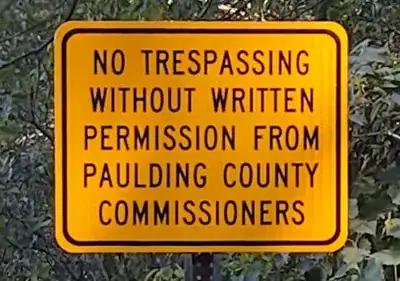I would have liked to comment on this, but not enough reputation...
I assure you that those statements are vetted by highly paid lawyers
I think it's a clash of culture.
The OP's view on these signs seems grounded in pure logic (possibly computer science?)
I assure you that from a purely logical perspective, both statements are indeed nonesense.
"Offer ends October 30 or while supplies last" literally means:
"while supplies last, the offer ends, and also ends on October 30"
If I was writing this as computer code, the offer would NEVER be applicable.
The intended meaning (based on "common sense", not pure logic) obviously is
"Offer will stop being valid by October 30, or when supplies run out, whichever occurs first"
Similarly, "getting permission to trespass" is a logical impossibility, since trespassing means entering without permission: you can't get permission to enter without permission, you can only get permission to enter. And if you don't get permission, it's trespassing.
Looking at these statements with "computer eyes" makes them sound illogical and inapplicable. But... The law clearly is meant for the common person, and to them the intent remains clear, despite the (demonstrably) garbled logic.
... It does make the statements incomprehensible to non-neurotypical people, though. So it might be argued there is a problem here in term of accessibility (in juridictions where such concept applies)
